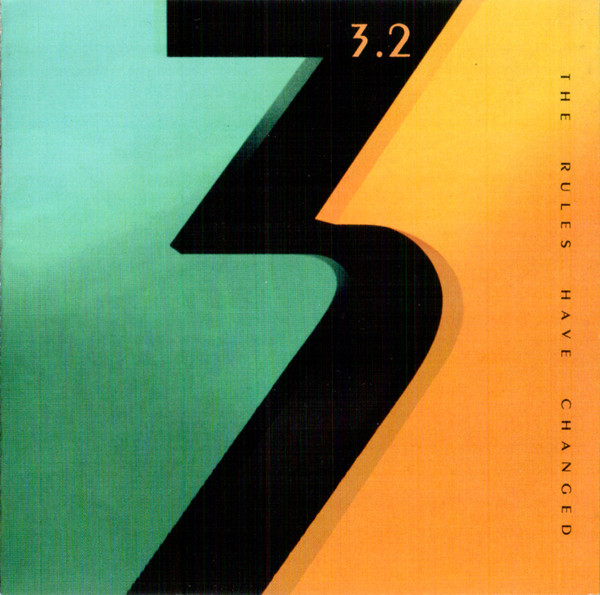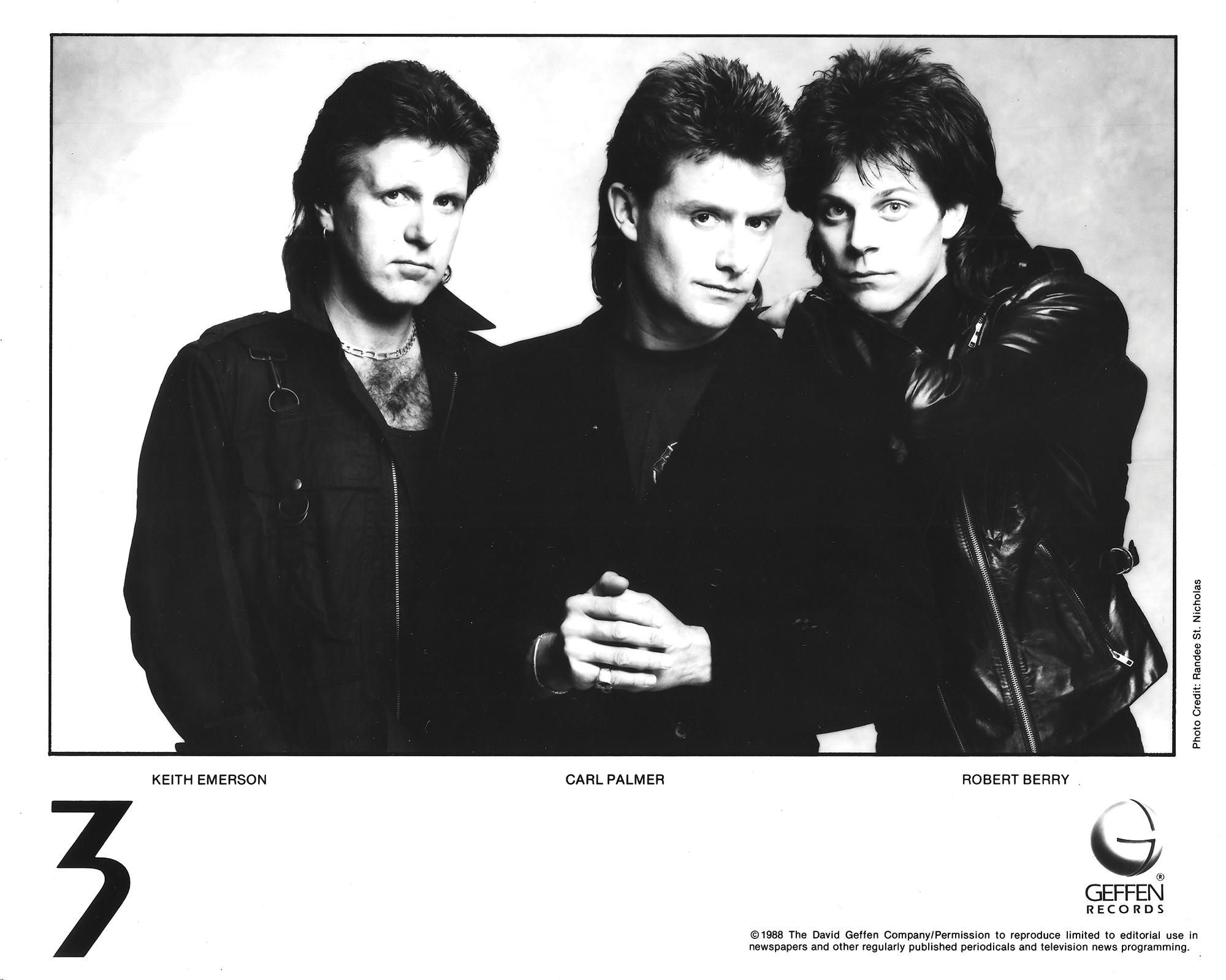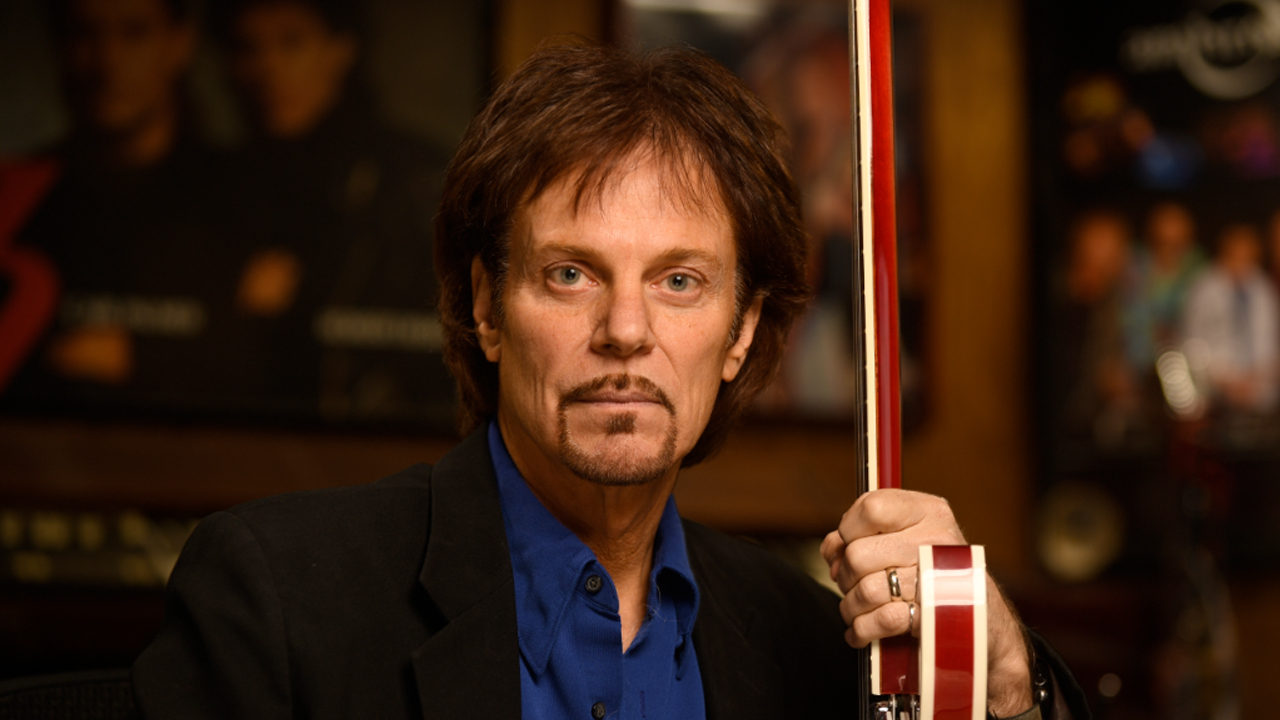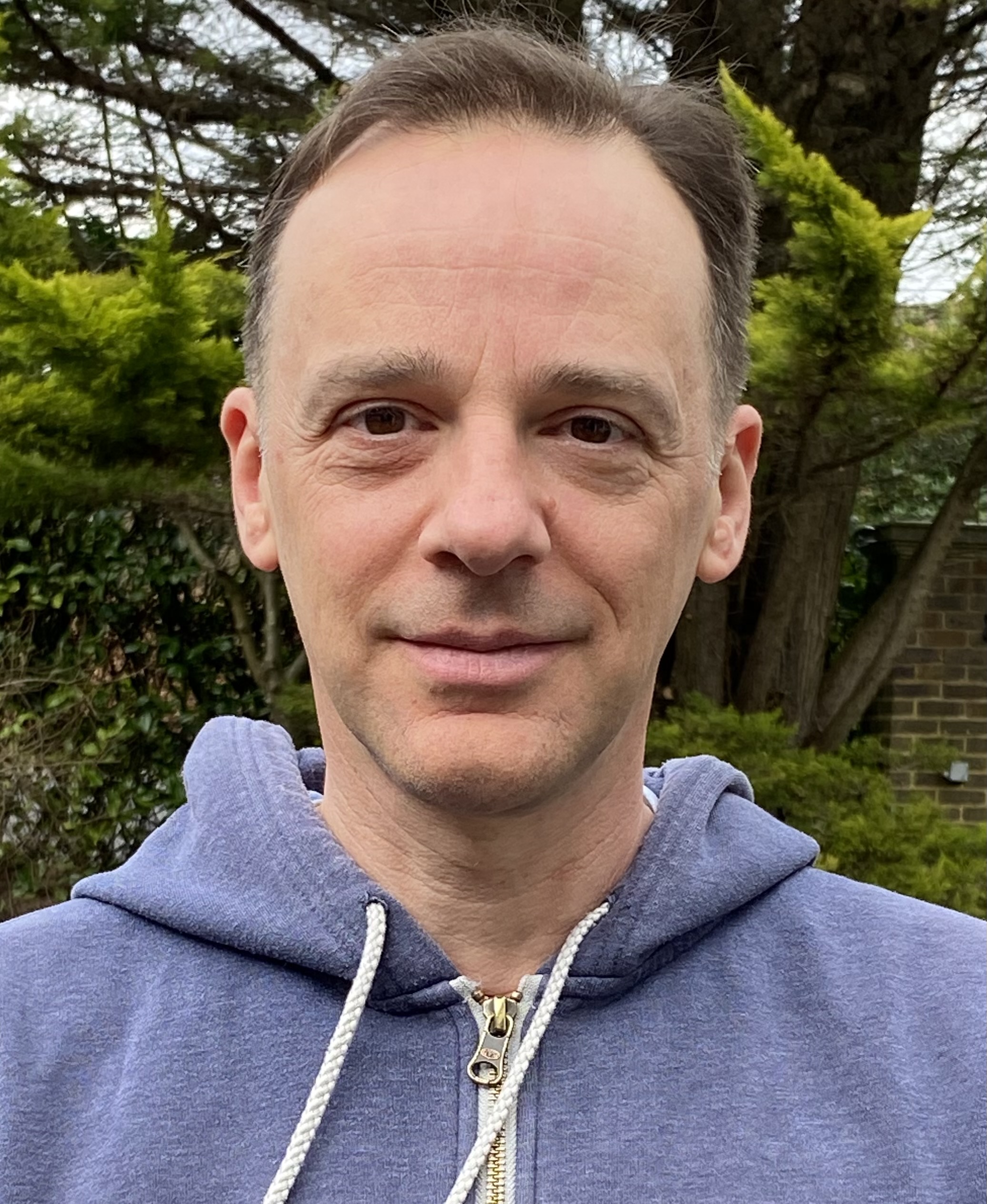At 10am on a sunny Monday, Robert Berry enters a hotel meeting room in central London for the first interview of a press tour to promote The Rules Have Changed, released under the banner of 3.2. Although Berry stepped off a plane from his northern California home just over 24 hours ago, he’s an affable bundle of energy.
While he’s enjoyed a lengthy career as a musician and a producer, covering a variety of styles, he’s acutely conscious that The Rules Have Changed may simultaneously be the most important album of his career and the one that attracts negative criticism.
“I’m worried about what people are going to think,” he admits. “This is my vision of what Keith Emerson and I could do, according to what he and I talked about.”
But first let’s contextualise The Rules Have Changed. A classically trained pianist, Berry’s musical career began in the mid-1970s. His first band Hush played prog covers before graduating to originals. “Progressive rock is in my blood,” he proclaims.
In the mid-1980s Berry had a couple of brushes with prog fame. “Carl Palmer called me in 1986 to replace John Wetton in Asia. That opened the floodgates and set my career up for the most successful guy you’ve never heard of!”
After Steve Hackett left GTR, Berry played alongside Yes/Asia guitarist Steve Howe as GTR explored recording a second album. While that follow-up album never materialised, Berry was now on the radar of prog’s heavyweights. He formed 3 in 1987 with keyboardist Emerson and drummer Carl Palmer following the demise of Emerson, Lake & Powell.
Fusing prog with pop rock, the resulting album …To The Power Of Three met with a mixed reception on its release in March 1988. It’s a curate’s egg of an album but where it’s good – the exhilarating Desde La Vida or On My Way Home, Emerson’s emotional memorial to former Nice manager Tony Stratton-Smith – it’s very good.
Elsewhere, and despite Emerson’s embellishments, some of the pop rock jarred. “Runaway was one of my favourite songs but it wasn’t right for 3,” Berry agrees. “It’s palatable but there’s no beauty in it. John Kalodner at Geffen found me through that song and saw me as Bryan Adams meets Sting. But where does that enter ELP? It doesn’t.”

Similarly, Berry has mixed feelings about the overtly commercial Chains, originally co-written by Sue Shifrin for Tina Turner. Indeed, Shifrin was at one stage mooted as a possible fourth member of 3. “I loved singing Chains,” Berry admits, “but of all the songs on that album, I dislike it the most as far as what 3 should’ve been.”
He adds, “Keith was looking for some of that success which Carl had enjoyed with Asia where there was musicality for progressive fans but songs that your Journey fan liked too. We would have found that in a second 3 album.”
But there would be no second 3 album. Following a tour, the band reconvened in London. Berry was keen to continue but found himself pushing water uphill.
“I brought Last Ride Into The Sun to the last band meeting in London. The band were sitting with our attorney and accountant. They were planning to break up the band because Keith didn’t want to do it any more. I played Last Ride… and Carl thought it was pretty good. Keith said, ‘That sounds like me playing.’ It was me doing the tracks.”
Berry explained how he felt Emerson could enhance his basic tracks. “But Keith was so done because of the criticism of 3 – he just wanted out.”
The band were finished and the song ended up on Berry’s 1993 album Pilgrimage To A Point.
Emerson and Berry remained in contact, with Emerson also living in southern California for many years and guesting on various projects that Berry produced. On and off, Berry encouraged Emerson to revisit 3 but with limited expectations. The band seemed destined to be a footnote in ELP’s history.
“Keith had put 3 totally out of his mind. He didn’t try to downplay it as much as just ignore it.”
But then Emerson’s interest in 3 was rekindled a few years ago following the release of Live In Boston ’88, recorded on the band’s tour that year.
“Keith called me after it was released saying he couldn’t believe how good we were,” Berry recalls. “He was hearing all the jamming where he could let loose. And he had forgotten that Desde La Vida and On My Way Home were great songs.”
Berry revealed to Emerson that the Italian label Frontiers, through whom Berry had released solo work, had been cajoling him to do another 3 album. On eliciting Emerson’s interest, Berry agreed a deal with Frontiers, including a meaningful advance, the size of which surprised Emerson.
“He told me he couldn’t get that sort of money usually, that nobody cared any more. That broke my heart, because to me Keith is one of a kind, a Jimi Hendrix. There’s nobody who does what he does.”

Frontiers wanted Emerson and Berry to play live to promote the proposed album. Emerson was less enamoured about the idea of taking 3 on tour.
“I thought down the road we could work this out and maybe just play one big showcase. But it didn’t really matter – the point of least resistance was that we would do the album. We had a good budget and artistic control. Keith was happy.”
Emerson and Berry then discussed the style of the proposed album. “We would send files backwards and forwards. It was rewarding and Keith was very on it. My idea for the album was to get these fiery, great Emerson parts and stick them into the songs I was writing, instead of me giving him songs and him putting his parts into the songs. I wanted to build from his connecting pieces. It was really fun.”
They spent three months working on this basis, with Berry also visiting Emerson when he was in Los Angeles. “The last photo I took of Keith was at the NAAM [instrument trade] show. He was a little quiet and didn’t have any of his usual bad jokes but seemed fine otherwise.”
Subsequently, Berry called Emerson and found the keyboardist considerably less content. Emerson was nervous about forthcoming solo shows in Japan while also suffering from dystonia and a sore arm following an operation.
“Keith loves Japan and the Japanese, and they love him. More than any other fan base, they’re his biggest fans. He was really upset about it.”
Berry suggested that Emerson cancel the Japanese shows. According to Berry, Emerson demurred, intending to honour his live commitments before visiting the UK to see his grandchildren and then returning to California to continue work on the 3 album. However, on March 11, 2016, Emerson committed suicide at his home in Santa Monica. Berry was stunned.
“The day Keith died, I lost a friendship with a sweet guy who was so warm and unguarded despite being a genius, and the best player I’ve ever seen in my life. And I lost my dream – I thought I could never do the album without him.”
In reaction to Emerson’s death, Berry wrote Our Bond and posted it on YouTube the following month.
“Our Bond dripped out of me, not so much as my own personal response, but rather what I thought was a worldwide response. Keith was my friend and my music partner, but the whole world felt a certain way.”
Nine months later, Berry was in touch with Emerson’s keyboardist son Aaron. “I was thinking it would be quite a tribute and fun if I did the album with Aaron.”
Aaron’s initial reaction was positive, but on hearing a proposed song, he opted out on the grounds of being a different kind of player to his father.
Undeterred, Berry forged ahead on a purely solo basis, having established that Carl Palmer wished to focus on his ELP Legacy endeavours.
“I decided that a lot of the sound and songs of 3 were me. The only guy that cared initially to do a second 3 album was me. I had an idea of what I thought we should be doing – and not pop songs. Keith and I had had extensive conversations about what the sound and style were going to be.”
Berry estimates that 20 per cent of the material on The Rules Have Changed originates from the three months when he and Emerson worked together. Indeed, five of the album’s eight tracks (there’s an additional instrumental track for Japan) are Emerson/Berry co-writes. But the music on The Rules Have Changed is all played by Berry.
“I was at my keyboard asking myself all the time, ‘What would Keith do?’ With certain chord structures I knew what Keith would do. But solo wise, I don’t play at all like him – he’s got this reckless abandonment. But as I would do solos, they came out of me in one take.”
The result is a far more satisfying album than …To The Power Of Three. “It took me a year to make the songs cohesive and feel like what Keith and I would have done if we had completed them in the same room. I set out to do an album with Keith that was more adventurous than anything he had done since Desde La Vida.”
Berry has been deliberately very explicit that he alone plays on the album but realises 3.2 may yet have detractors. “I don’t want people to think I’m trading on Keith’s name. He meant a lot more to me than using him to have commercial success. It’s why I’m saying this is just me. There’s going to be some negative stuff and I’m ready for it. But the love that the music has received so far has brought tears to my eyes.”
This article originally appeared in issue 90 of Prog Magazine.

